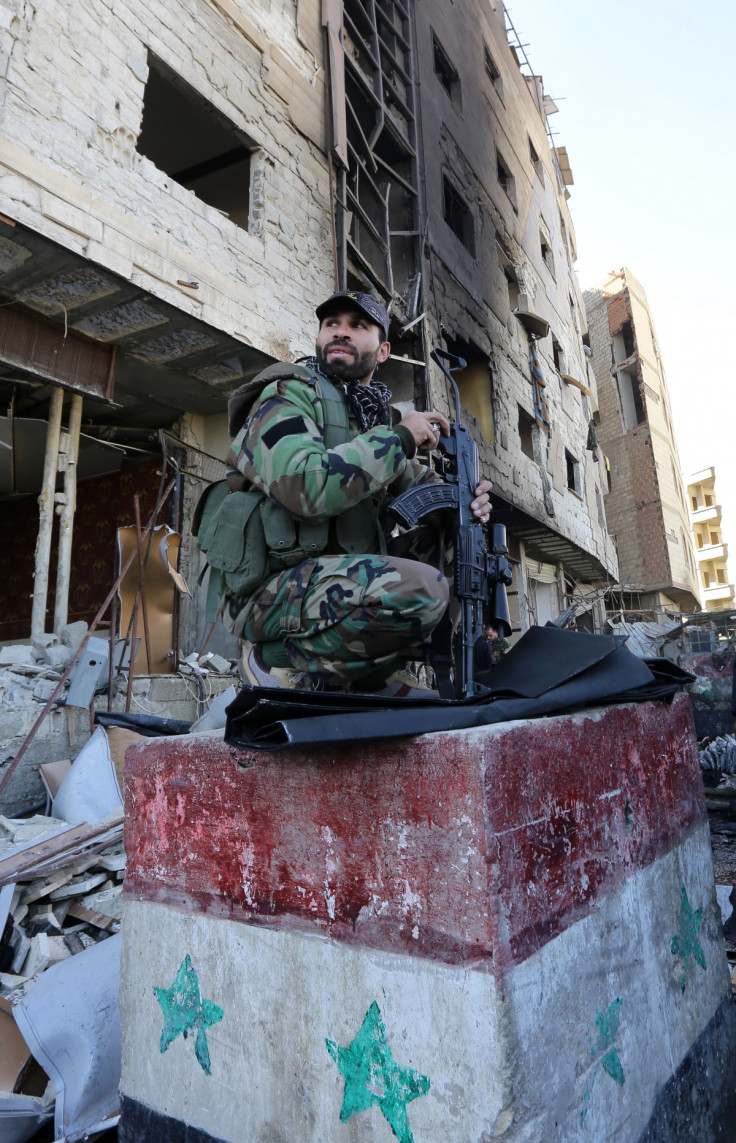Syria: Shaky peace process to start in Geneva amid deadly bombings and sieges

A rickety diplomatic effort to end the Syrian civil war is due to get under way on 1 February in Geneva as the echoes of deadly bombings and town sieges remind delegates the urgency of finding a political solution to the conflict. UN special envoy Staffan de Mistura is to separately meet representatives of the regime and the main opposition group, as the rival factions refuse to sit at the same table.
The first round of talks between Mistura and delegates of the High Negotiations Committee (HNC) are scheduled for 17:00 local time (16:00GMT) at the UN headquarters in the Swiss city. The umbrella opposition group has however already said discussions will be short-lived if President Bashar Assad doesn't allows humanitarian access to blockaded rebel-held areas, releases detainees and cease bombings of civilians.
"We only came to Geneva after written commitments on the fact that there would be serious progress on the humanitarian issues," HNC spokeswoman Basma Kodmani said on 31 January. "We are here for political negotiations but we cannot start those until we have those gestures".
Particularly pressing is the situation in western town of Madaya, where some thousands of people remain trapped in appalling conditions after a six-month siege by regime forces. Speaking in Geneva on 1 February, The UN High Commissioner for Human Right, Zeid Ra'ad Al Hussein, said the ongoing starvation of civilians potentially consisted with a crime against humanity and as such should not be covered by any amnesty negotiated at the talks.
"In the case of Syria, we are there to remind everyone that where there are allegations that reach the threshold of war crimes or crimes against humanity that amnesties are not permissible," Reuters qouted him as saying.
The UN believes up to 400,000 Syrians are currently in desperate need of emergency assistance due to regime and rebel blockades across the country. However, the regime's chief negotiatior, Bashar Ja'afari, dismissed the opposition's stance as "not serious and irresponsible". "Those who speak about preconditions are coming to this meeting in order to derail it," he said.
Under a blueprint laid out by foreign powers with a stake in the conflict, the Geneva talks are scheduled to last six months in the hope they will lead to elections in 2017. However, no preliminary agreement on the future of Assad has been reached and some key players – the Islamic State (Isis) group, the Syrian Kurdish PYD and Al-qaeda's affiliate Nusra Front – are not involved in the peace process.
On 31 January, IS (Daesh) claimed responsibility for a triple bombing that killed more than 70 people in a predominantly Shiite suburb south of Damascus. Federica Mogherini, the EU foreign policy chief, said the attack was "clearly aimed to disrupt the attempts to start a political process. Nevertheless, this process, started in November last year in Vienna, provides the best and probably only chance to bring to an end the conflict in Syria, which has caused and continues to cause so much suffering to so many," she said.
In Washington US Secretary of State John Kerry urged the HNC and the regime to "make the most of this moment" with the future of Syria in mind. "The road ahead remains challenging. Success is not assured. But we have seen through years of savage fighting what the absence of serious negotiation yields," he said in a video message.
"Now, while battlefield dynamics can affect negotiating leverage, in the end there is no military solution to this conflict. Without negotiations, the bloodshed will drag on until the last city is reduced to rubble and virtually every home, every form of infrastructure, and every semblance of civilization is destroyed".
This week, #SyriaTalks begin in Geneva. @JohnKerry urges parties to negotiate seriously, in good faith. #SyriaCrisis https://t.co/pvFnTXsi0a
— Department of State (@StateDept) February 1, 2016© Copyright IBTimes 2025. All rights reserved.






















